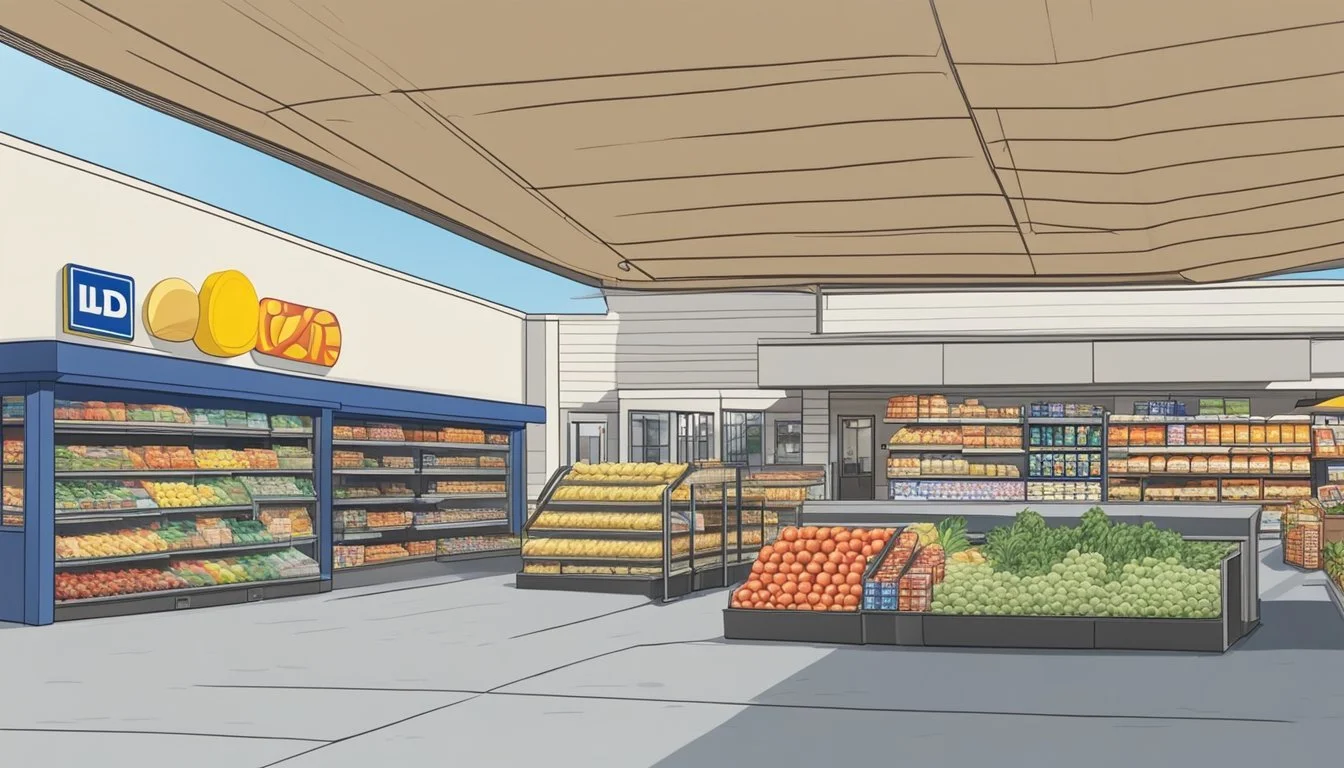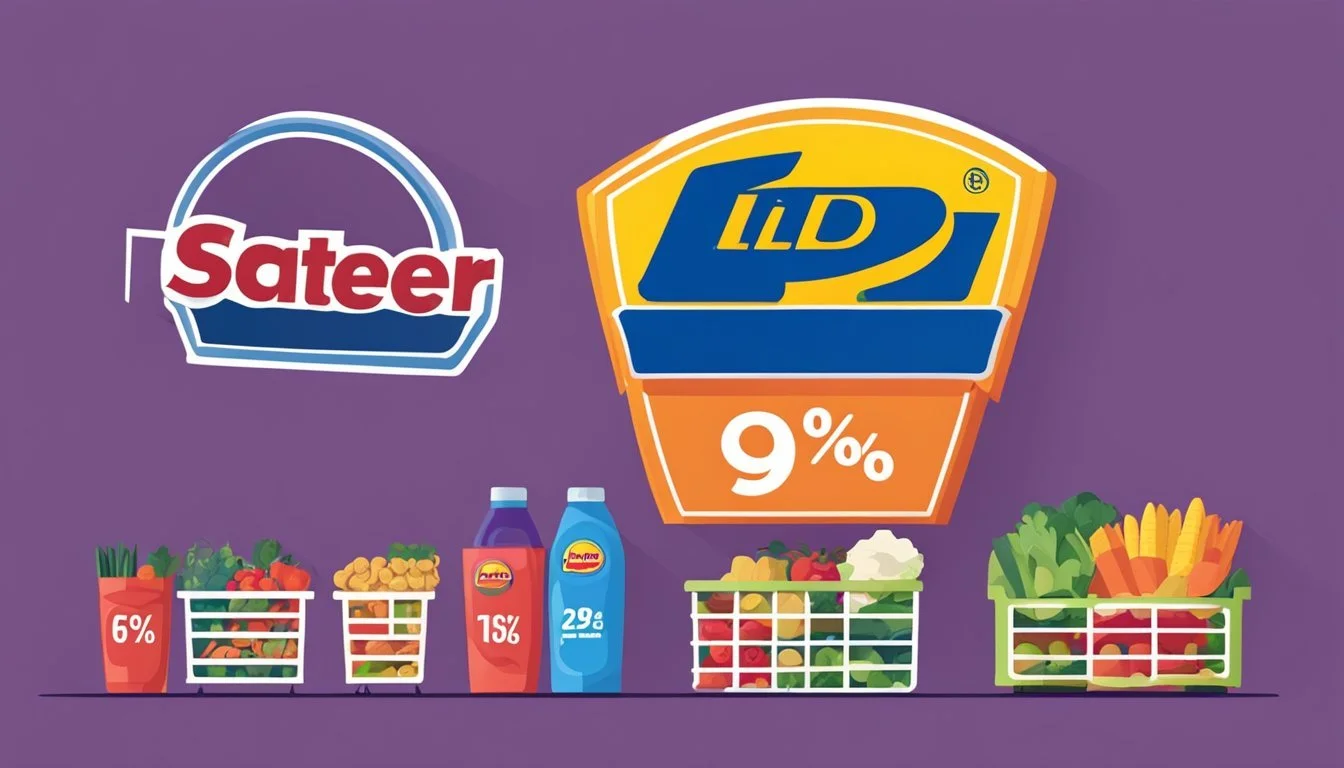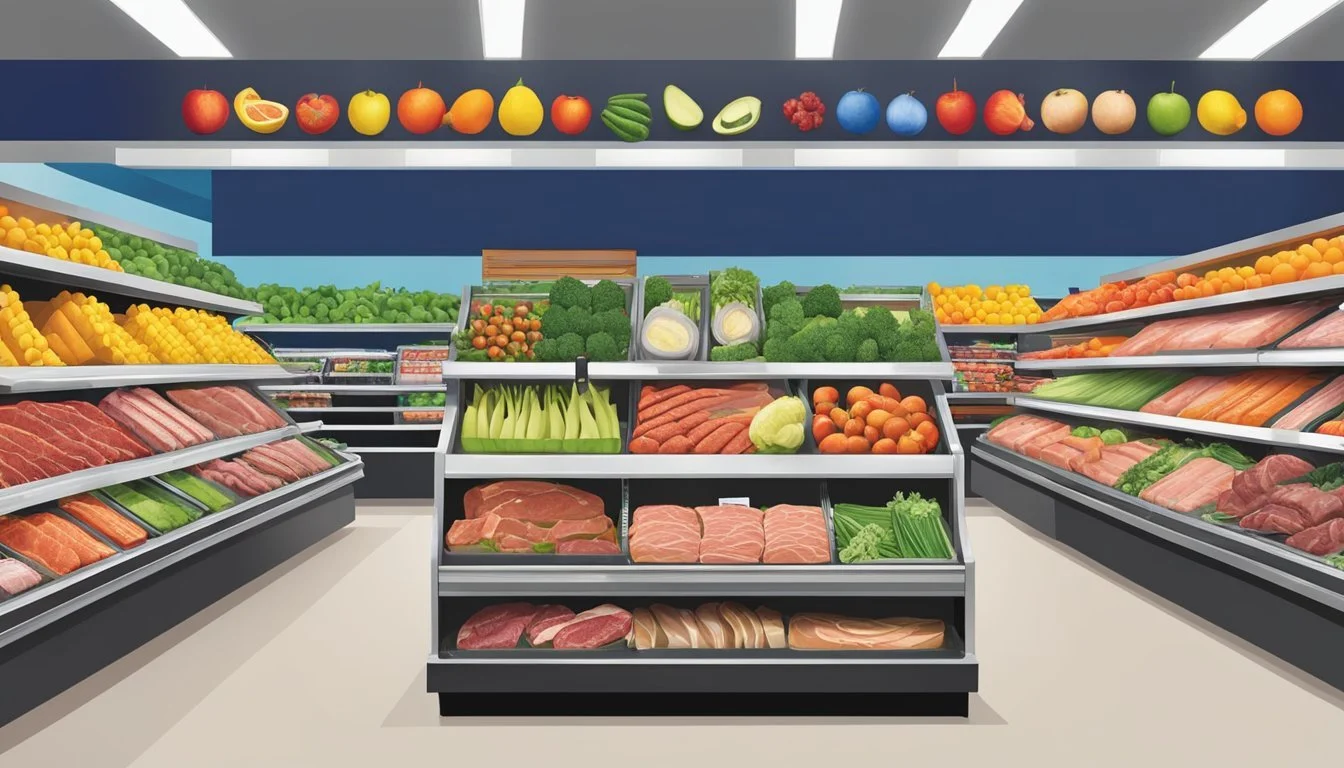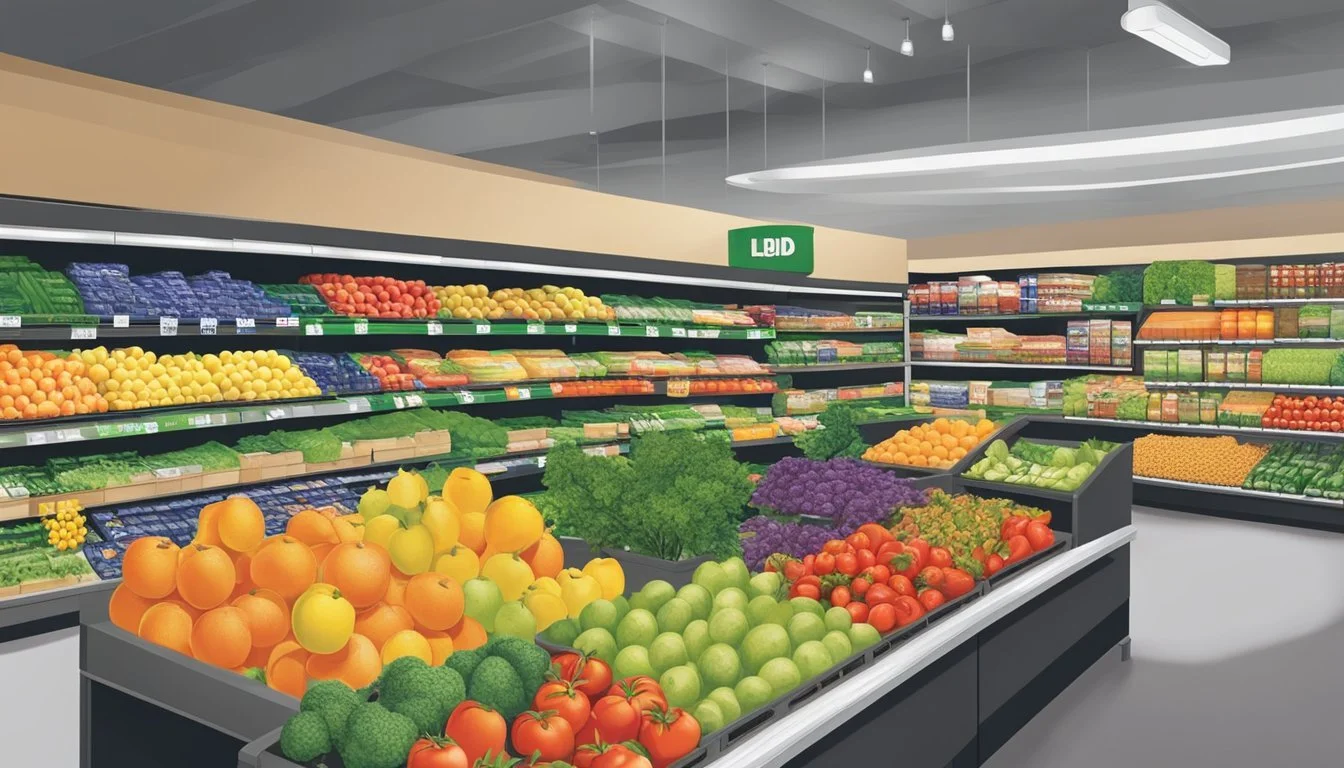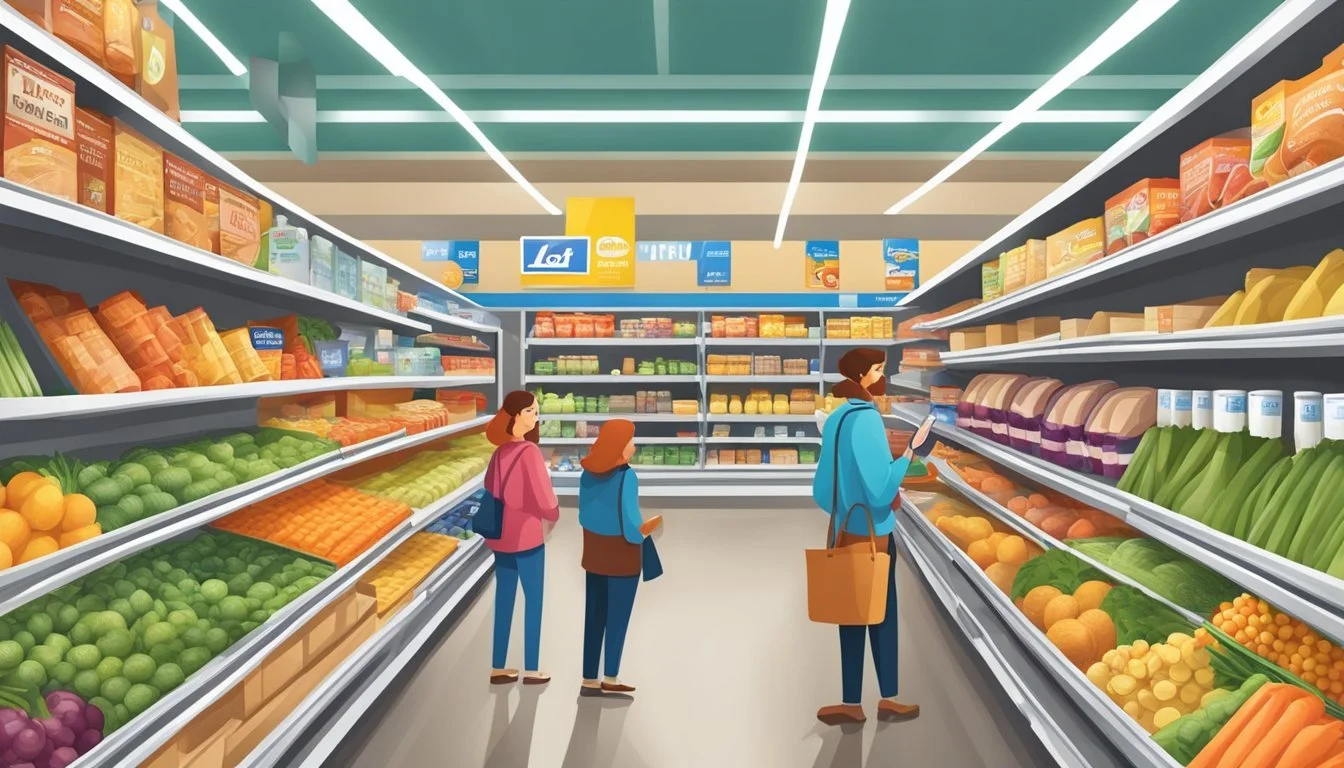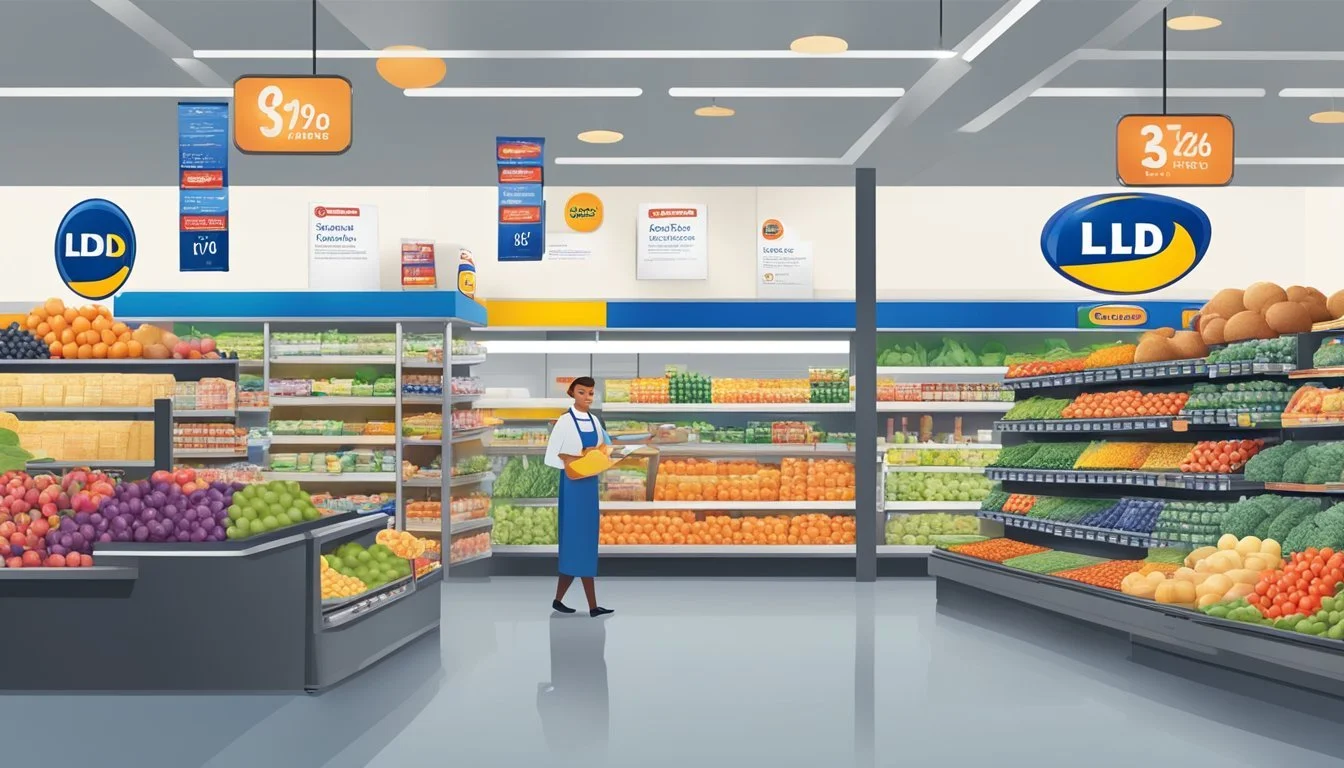Lidl vs Stater Bros. Markets
A Comprehensive Comparison of Price, Quality, and Selection
Grocery shopping can be a complex decision, with various factors influencing where consumers choose to spend their money. Lidl and Stater Bros. Markets are two distinct grocery chains that cater to different segments of the market.
Lidl, a German discount supermarket, has been expanding its presence in the United States. The chain is known for its low prices and efficient store layouts. Lidl offers competitive pricing and a mix of private label and name-brand products, making it an attractive option for budget-conscious shoppers.
Stater Bros. Markets, on the other hand, is a regional supermarket chain primarily operating in Southern California. It has built a reputation for quality produce and meat departments, as well as emphasizing customer service. The company focuses on serving local communities and maintaining a traditional grocery store experience.
History and Overview of Lidl and Stater Bros. Markets
Lidl and Stater Bros. Markets represent two distinct approaches to grocery retail, each with its own unique history and regional focus.
Lidl: From European Roots to the U.S. Market
Lidl traces its origins to 1930s Germany. Josef Schwarz became a partner in Südfrüchte Großhandlung Lidl & Co., a fruit wholesaler in Heilbronn. The company evolved under his son Dieter Schwarz's leadership.
Lidl expanded rapidly across Europe, known for its discount model and efficient operations. In 2017, Lidl made its U.S. debut, opening stores on the East Coast. The move marked a significant expansion for the European giant.
Lidl's U.S. presence grew steadily, with stores in multiple states. The company adapted its European model to suit American consumers, offering a mix of private-label and name-brand products.
Stater Bros. Markets: Serving Southern California
Stater Bros. Markets began during the Great Depression. Twin brothers Cleo and Leo Stater founded the company on August 17, 1936, in Yucaipa, California. They purchased their first store with a $600 down payment.
From humble beginnings, Stater Bros. expanded throughout Southern California. The company maintained its regional focus, becoming a familiar name to local shoppers. By 2024, Stater Bros. operated 169 supermarkets across seven counties.
Stater Bros. built a reputation for community involvement and customer service. The chain employed approximately 18,000 people, contributing significantly to the local economy. Its headquarters in San Bernardino underscored its commitment to the region.
Store Locations and Accessibility
Lidl and Stater Bros. Markets have distinct geographic footprints and store distributions. Their accessibility varies based on location and expansion strategies.
Geographic Footprint Comparison
Lidl operates primarily on the East Coast of the United States. The German-based discount retailer entered the U.S. market in 2017 and has since expanded to over 150 stores across nine states. These include Virginia, North Carolina, South Carolina, Georgia, Maryland, Delaware, New Jersey, New York, and Pennsylvania.
Stater Bros. Markets, in contrast, focuses exclusively on Southern California. The chain boasts 171 stores throughout the region. Its presence is particularly strong in San Bernardino, Riverside, Los Angeles, and Orange counties.
Convenience and Store Proximity
For East Coast residents, Lidl offers increasing accessibility as it continues to expand. The company strategically places stores in both urban and suburban areas, often targeting locations with high foot traffic and visibility.
Stater Bros. Markets provides convenience for Southern California shoppers. Its dense network of stores ensures that many customers have a location within a short driving distance. The chain's long-standing presence in the region has allowed it to optimize store placements based on community needs.
Lidl's newer U.S. stores often feature modern layouts and ample parking. Stater Bros. Markets has been updating its older locations to enhance the shopping experience. Both chains prioritize customer accessibility, though their approaches differ due to their distinct market focuses.
Product Selection and Quality
Lidl and Stater Bros. Markets offer distinct product selections and quality levels. Both stores aim to meet diverse customer needs through their assortments, private labels, and brand offerings.
Assortment of Goods
Lidl provides a curated selection of around 3,500 products, focusing on essential items and rotating specialty goods. Their streamlined inventory includes fresh produce, meats, dairy, and pantry staples. Stater Bros. Markets boasts a more extensive range, with approximately 15,000 products across departments. This wider selection encompasses specialty items, international foods, and local favorites.
Lidl emphasizes efficiency with its limited-time offers, introducing new products weekly. Stater Bros. maintains a consistent inventory, catering to regular shoppers seeking familiar items.
Private Label Offerings
Lidl's private label products make up about 90% of their inventory. These items often match or exceed national brand quality at lower prices. Popular Lidl brands include Preferred Selection for premium goods and Milbona for dairy.
Stater Bros. offers its own private labels, though they comprise a smaller portion of the store's inventory. These include Cleo & Leo for pet supplies and Full Circle for organic products. Stater Bros. private labels aim to provide value alternatives to national brands.
Brand Versus Generic
Lidl focuses primarily on its private label products, with limited national brand offerings. This approach allows for competitive pricing but may disappoint customers seeking specific brand-name items. Lidl's generic products often receive positive reviews for quality and value.
Stater Bros. strikes a balance between national brands and generic options. They stock popular brands across categories while offering their private labels as budget-friendly alternatives. This mix caters to both brand-loyal customers and price-conscious shoppers.
Stater Bros.' meat department garners particular praise for its quality and selection, featuring both store-brand and name-brand options. Lidl's meat offerings, while more limited, are known for their competitive pricing and quality standards.
Pricing Strategies
Lidl and Stater Bros. Markets employ distinct pricing strategies to attract customers and offer value. These approaches impact shoppers' overall costs and potential savings.
Everyday Low Prices Versus Sales
Lidl focuses on maintaining consistently low prices across its product range. The German retailer keeps costs down through efficient store layouts, limited product selection, and strong relationships with suppliers. This strategy allows Lidl to offer competitive prices without relying heavily on temporary sales or promotions.
Stater Bros. Markets takes a different approach. While maintaining competitive baseline prices, the chain frequently runs sales and promotional deals. These temporary price reductions can lead to significant savings for savvy shoppers who time their purchases accordingly. Stater Bros. often features weekly specials, buy-one-get-one deals, and seasonal promotions to drive traffic and boost sales.
Membership and Rewards Programs
Lidl does not offer a traditional loyalty program. Instead, the company focuses on providing low prices to all customers without the need for memberships or special cards. This approach aligns with Lidl's no-frills shopping experience and emphasis on simplicity.
Stater Bros. Markets, on the other hand, operates a rewards program called "Stater Bros. Rewards." This program allows customers to earn points on their purchases, which can be redeemed for discounts on future shopping trips. Members also receive personalized offers and exclusive deals based on their shopping habits. The rewards program provides an additional avenue for savings, particularly for frequent Stater Bros. shoppers.
Frequent Promotions and Deals
Both Lidl and Stater Bros. Markets offer various promotions and deals to attract customers and provide value. These grocery chains employ different strategies to deliver savings through weekly advertisements, seasonal specials, and exclusive discounts.
Weekly Ads and Seasonal Specials
Lidl releases a weekly ad featuring limited-time deals on groceries, household items, and seasonal products. The retailer often highlights "Lidl Surprises" - special buys on non-food items available while supplies last. Stater Bros. Markets also publishes a weekly ad, accessible through their mobile app and website. Their circular showcases discounted products across departments, including produce, meat, and pantry staples.
Both stores run seasonal promotions tied to holidays and events. Lidl frequently introduces themed product lines, such as German specialties during Oktoberfest. Stater Bros. offers holiday meal deals and summer grilling specials to align with customer needs throughout the year.
Exclusive Discounts and Offers
Lidl provides savings through its Lidl Plus mobile app. Users can access digital coupons, personalized offers, and scratch cards for additional discounts. The app also features a loyalty program where customers earn rewards on purchases.
Stater Bros. Markets focuses on everyday low prices rather than a loyalty program. However, they offer digital coupons through their mobile app and website. Customers can load these coupons to their account for automatic savings at checkout.
Both chains occasionally run in-store promotions like buy-one-get-one deals or multi-buy discounts. Lidl tends to emphasize its private label products in promotions, while Stater Bros. offers a mix of deals on both national brands and store brands.
Meat and Produce Departments
Lidl and Stater Bros. Markets offer distinct experiences in their meat and produce sections. The quality, variety, and sourcing of fresh foods significantly impact customer satisfaction and shopping choices at these grocery chains.
Freshness and Source of Produce
Lidl emphasizes affordable, high-quality produce. They source fruits and vegetables from local farms when possible, reducing transportation time and costs. This approach often results in fresher produce on shelves. Lidl's produce section features a rotating selection of seasonal items, keeping the offerings varied and interesting for shoppers.
Stater Bros. Markets prides itself on its extensive produce department. They work closely with California growers to provide a wide array of fresh fruits and vegetables. The chain is known for its commitment to quality control, ensuring that produce meets strict standards before reaching store shelves.
Both stores offer organic options, but Stater Bros. typically has a larger selection of organic produce. Lidl compensates with competitive pricing on its organic items.
Meat Quality and Variety
Lidl's meat department focuses on value without compromising quality. They offer USDA Choice beef and a selection of poultry and pork products. Lidl has been expanding its offerings of specialty meats, including 100% grass-fed beef options and antibiotic-free chicken.
Stater Bros. Markets is renowned for its meat department. They offer a wide variety of cuts and types of meat, including USDA Choice and Prime beef. The chain is known for its in-store butchers who can provide custom cuts and expert advice.
Stater Bros. also carries a range of specialty meats, including organic and grass-fed options. Their selection often includes less common items like veal and lamb. The chain's commitment to quality has earned them a loyal customer base for their meat products.
Both stores offer pre-marinated and ready-to-cook meat options for customer convenience. Lidl tends to have more budget-friendly prices, while Stater Bros. focuses on variety and premium selections.
Other In-Store Departments
Lidl and Stater Bros. Markets offer diverse departments beyond their main grocery aisles. Each store provides unique options in their deli, bakery, wine, and specialty food sections, as well as dairy and frozen foods areas.
Deli and Bakery Options
Lidl's deli and bakery departments focus on efficiency and value. The store offers a selection of pre-sliced meats and cheeses, as well as grab-and-go sandwiches. Lidl's bakery features fresh-baked bread, pastries, and cakes at competitive prices. Many items are baked in-store throughout the day.
Stater Bros. Markets provides a more traditional deli experience with made-to-order sandwiches and a wider variety of sliced meats and cheeses. Their bakery department offers a broader range of fresh-baked goods, including artisan breads, custom cakes, and local favorites.
Wine and Specialty Foods
Lidl's wine selection is known for its affordability and quality. The store carries a curated assortment of wines from various regions, often featuring award-winning bottles at budget-friendly prices. Lidl also offers a rotating selection of specialty foods, including international cheeses, chocolates, and seasonal items.
Stater Bros. Markets typically has a larger wine department with a wider variety of brands and price points. Their specialty food section includes gourmet cheeses, olives, and a selection of local and regional products. Stater Bros. also tends to carry more specialty diet items and organic options.
Dairy and Frozen Sections
Lidl's dairy section focuses on essential items at competitive prices. The store offers a mix of name-brand and private-label products. Lidl's frozen food section is compact but includes a variety of convenient meal options, frozen fruits and vegetables, and desserts.
Stater Bros. Markets generally has a more extensive dairy department with a wider range of brands and specialty items like organic milk and plant-based alternatives. Their frozen food section is typically larger, offering more variety in frozen meals, ice cream, and specialty frozen products.
Comparative Shopping Experiences
Lidl and Stater Bros. Markets offer distinct shopping experiences. Their approaches to store layout, customer service, and checkout efficiency shape how customers perceive and interact with each retailer.
Store Layout and Design
Lidl employs a minimalist design with wide aisles and clear signage. Products are often displayed in their original shipping boxes, creating an efficient warehouse-like atmosphere. This layout allows for quick restocking and easy navigation.
Stater Bros. Markets opts for a more traditional supermarket layout. Departments are clearly defined, with produce, bakery, and deli sections prominently featured. The stores typically have a warmer ambiance with softer lighting and more detailed product displays.
Lidl's layout emphasizes efficiency and value, while Stater Bros. focuses on a familiar, comfortable shopping environment. Both approaches have their merits, appealing to different customer preferences.
Customer Service and Satisfaction
Lidl prioritizes a lean staffing model to keep costs down. Employees are cross-trained to handle multiple roles, which can lead to quicker assistance when needed. However, this approach may result in fewer staff members available on the floor at any given time.
Stater Bros. Markets places a stronger emphasis on personalized customer service. They typically have more employees available throughout the store, including dedicated staff in specialty departments like the deli and bakery.
Customer satisfaction surveys have shown mixed results for both chains. Lidl customers appreciate the value and efficiency, while Stater Bros. shoppers value the attentive service and community-oriented atmosphere.
Checkout Efficiency
Lidl utilizes a fast-paced checkout system. Cashiers scan items quickly, and customers are expected to bag their own groceries at a separate counter. This method aims to reduce wait times and keep lines moving swiftly.
Stater Bros. Markets offers a more traditional checkout experience. Cashiers often bag groceries for customers, which can lead to longer wait times but may be preferred by those who appreciate the extra service.
Both stores have been implementing self-checkout options to enhance convenience and reduce wait times. Lidl's self-checkout system aligns with their efficiency-focused model, while Stater Bros. provides it as an additional option alongside their full-service lanes.
Customer Reviews and Ratings
Customer feedback plays a crucial role in evaluating grocery stores. Both Lidl and Stater Bros. Markets have received mixed reviews from consumers across different platforms.
Consumer Reports and Feedback
Consumer Reports ranked Stater Bros. Markets ninth in their 2017 survey of best places to grocery shop. The report praised Stater Bros. for its competitive prices, quality meat and poultry, and excellent staff. Lidl, being a newer entrant to the U.S. market, was not included in this particular ranking.
Stater Bros. Markets received positive feedback for its customer service. One shopper reported spending less than expected on their groceries, with a total bill of $60.63 instead of the anticipated $90.
Online Reviews and Social Proof
Online reviews for both stores vary. Lidl has gained attention for its low prices and unique product offerings. Some customers appreciate its European-style shopping experience and high-quality store brands.
Stater Bros. Markets has built a loyal customer base in its operating regions. Shoppers often praise its meat department, with many considering it one of the best places to buy meat. The store's consistent pricing and friendly staff are frequently mentioned in positive reviews.
Both chains face challenges typical of grocery stores, such as occasional stock issues or long checkout lines during peak hours. These factors can impact individual customer experiences and reviews.
Company Values and Market Position
Lidl and Stater Bros. Markets have distinct approaches to sustainability, social responsibility, and market influence. These factors shape their positions in the competitive grocery landscape and impact consumer perceptions.
Sustainability and Social Responsibility
Lidl emphasizes sustainability through various initiatives. The company focuses on reducing food waste, promoting responsible sourcing, and minimizing its environmental footprint. Lidl has set ambitious goals to eliminate single-use plastics and increase the use of recyclable packaging.
Stater Bros. Markets, rooted in local communities, prioritizes social responsibility. The company supports numerous charitable organizations and community events. Stater Bros. also implements energy-efficient practices in its stores and distribution centers.
Both chains have implemented programs to support local farmers and producers, aligning with growing consumer interest in locally-sourced products.
Market Influence and Consumer Perception
Lidl, a relatively new entrant to the U.S. market, has quickly gained attention for its low prices and quality private-label products. The chain's small-format stores and limited assortment model appeal to budget-conscious shoppers seeking efficiency.
Stater Bros. Markets, with its long history in Southern California, enjoys strong regional loyalty. The company's focus on customer service and community engagement has fostered a positive reputation among local consumers.
Lidl's market share is growing, currently at 0.3% of the U.S. grocery market. Stater Bros., while regionally significant, maintains a modest national presence. Both chains face intense competition from larger national and multinational grocery retailers.


